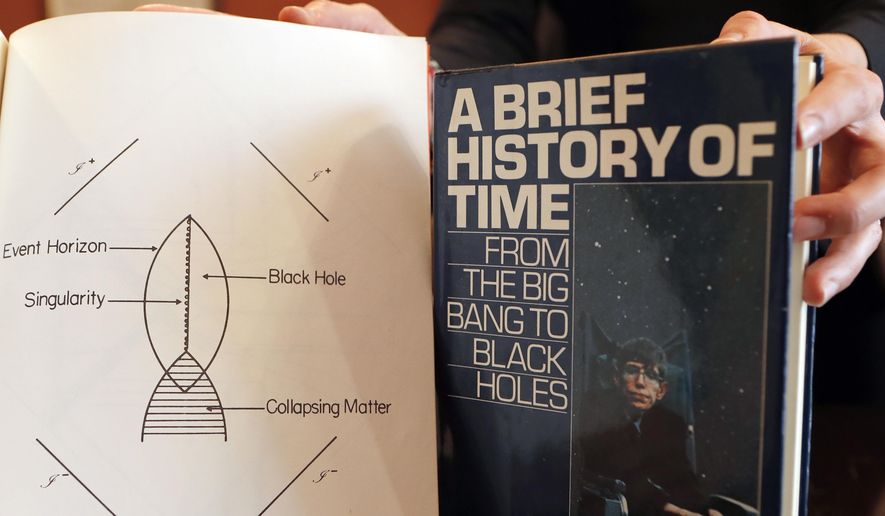OPINION:
Cosmologist Stephen Hawking made headlines from beyond the grave this October when, seven months after his death, his presumed last book was published bearing these words: “There is no God.”
And with that, the already wide gap separating science and religion, physical from spiritual, got a bit wider.
What a shame.
What a missed opportunity to learn and grow.
Headlines like this, from a 2015 New Yorker op-ed — “All Scientists Should be Militant Atheists” — may draw the online clicks. But it doesn’t have to be that way.
As Jay Richards, author of “The Human Advantage: The Future of American Work in an Age of Smart Machines,” suggested: What’s missing from much of today’s modern science is the God factor.
“We need to have this argument with people,” he said in an interview. “We’re free beings made in the image of God.”
Far too often, though, scientific inquiry and spirituality are being treated as mutually exclusive, as if never the two shall meet. That’s not simply an anecdotal observance.
Researchers with the Religion and Public Life Program at Rice University in Texas reported in December of 2015 the state of biologists’ and physicists’ spirituality in eight regions of the world and found: “Scientists are indeed more secular — in terms of beliefs and practices — than those in their respective general populations.”
Specifically, 35 percent of U.S. scientists told researchers they were atheists. That’s a third of the researching, teaching, publishing, fund- and grant-receiving scientific population of America — and it comes amid findings from Gallup in 2016 showing about 90 percent of Americans believe in God, and amid a survey from Pew Research in 2017 revealing a third of Americans read the Bible at least once a week.
Call it a great divide.
But what results is a widespread pressure in the scientific world to approach inquiry from an assumption of atheism — as well as a growing sense within the God-fearing world to regard the scientific community with rank suspicion.
And once again: What a shame.
With the full-steam-ahead speed at which artificial intelligence is going mainstream, making its way, largely unregulated, into everything from music choices and real estate agenting selections to driverless cars and police unit surveillance powers, plenty of possible bridges to this great divide would seem to present.
Richards, in his book about saving the American Dream in the coming age of technologically based automation, offers one: Unlike machinery, he said, humans “have the capacity for virtue.” In other words: Not all A.I. should be feared — but then again, it’s only when A.I. is constrained by properly directed virtuous people that it shouldn’t be feared.
There’s a bridge between science and faith, technology and religion that can be explored and better exploited.
Now compare that with Hawking’s “Brief Answers to the Big Questions” reflections of religion that went like this: “We are each free to believe what we want, and it’s my view that the simplest explanation is that there is no God. No one created the universe and no one directs our fate.”
Don’t let the door hit you on the way out. That’s all she wrote. The end.
In Hawking’s view, atheism may be the “simplest explanation” to life’s mysteries. But is it really the most scientifically sound? Is it even, truly, the “simplest” to support with fact and common sense?
There’s a whole community of faithfuls out there who say no.
A science world with a default premise of No God is a disservice, in the end, to true scientific inquiry. At the very least, as Richards pointed out, having the argument keeps up the search for truths. And that’s just got to be good for all sides concerned.
• Cheryl Chumley can be reached at cchumley@washingtontimes.com or on Twitter, @ckchumley.




Please read our comment policy before commenting.